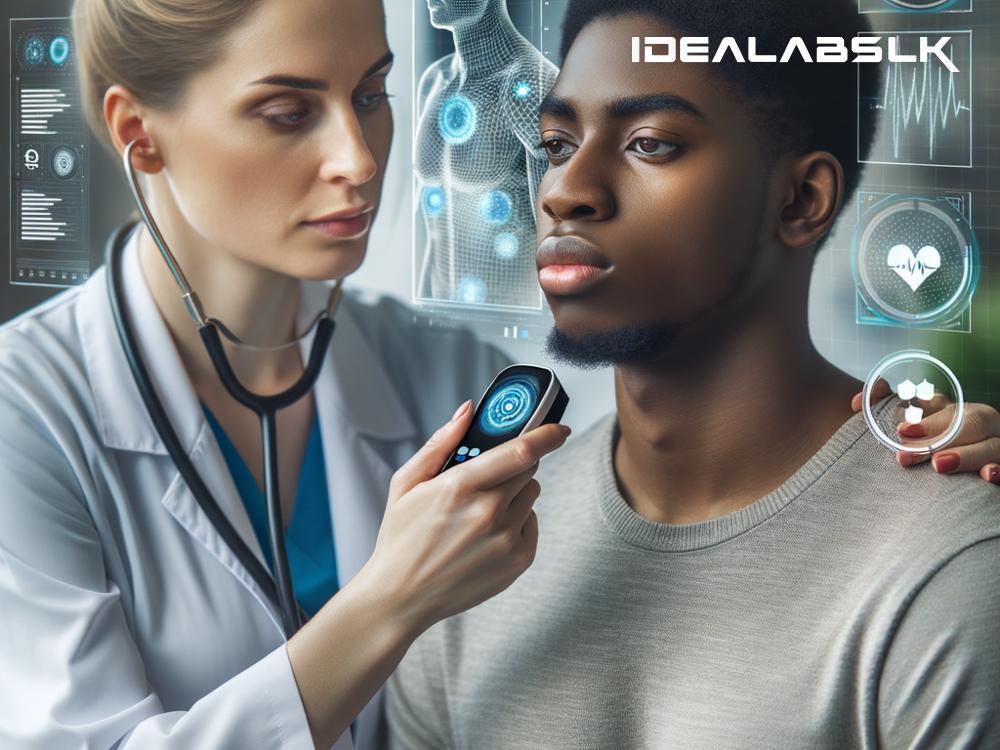How AI Powers Instant Diagnostics in Portable Medical Devices
Imagine a world where your smartphone or a small handheld device could tell you if you're coming down with something more serious than a common cold, or even monitor chronic conditions like diabetes, without stepping into a doctor's office. Sounds like something from a sci-fi novel, right? Thanks to advancements in artificial intelligence (AI), this scenario is not as far-fetched as it once seemed. In fact, AI-powered portable medical devices are changing the way diagnostics are performed, making healthcare more accessible, efficient, and precisely tailored to your unique needs.
What's the Buzz About AI in Healthcare?
Artificial Intelligence, simply put, is the development of computer systems that can perform tasks that usually require human intelligence. These tasks include learning, reasoning, problem-solving, understanding language, and, importantly for healthcare, recognizing patterns in data. When it comes to medicine, AI can digest vast amounts of information incredibly quickly, providing insights and diagnostics that might take a human doctor much longer to figure out.
The Rise of Portable Medical Devices
Portable medical devices have been around for a while. Think of glucose monitors for diabetics or heart rate monitors for athletes. However, recent innovations have taken these devices to a whole new level. From wearables that track your sleep patterns and physical activity, to handheld devices that can measure blood pressure, oxygen levels, and even perform echocardiograms, these gadgets are becoming increasingly sophisticated.
The real game changer, though, is when these devices are powered by AI. This combination of portability and smart technology means you can now have access to instant diagnostics wherever you are, without the need for bulky equipment or a visit to a medical facility.
How Does AI Power Instant Diagnostics?
-
Data Analysis: AI algorithms can analyze vast amounts of data from various sources (like medical records, wearable devices, and genetic information) in seconds, identifying patterns and anomalies that could indicate a health issue.
-
Machine Learning: Over time, AI systems learn from the data they process, improving their diagnostic accuracy. This means the more data the AI is fed, the better it gets at predicting and diagnosing diseases.
-
Image Recognition: AI can evaluate images, such as X-rays or scans, with astonishing precision, often spotting details that the human eye might miss. This capability is especially valuable in areas like radiology and oncology.
-
Real-time Monitoring: AI-powered devices can provide continuous health monitoring, alerting you to any concerning changes in your vitals or health markers, thus enabling prompt action.
Examples of AI in Action
Several AI-powered portable devices are already making waves in healthcare:
- Smartwatches that can detect heart irregularities and even perform electrocardiograms (ECGs).
- Portable ultrasound devices that connect to smartphones, allowing for instant scans that can be immediately analyzed by AI for any abnormalities.
- Handheld blood analysis devices that can perform a variety of tests on the spot, with AI algorithms analyzing the results in real-time, providing immediate feedback.
The Benefits Are Clear
The implications of these advancements are profound. For patients, it means more control over their health, earlier detection of potential issues, and personalized insights into their well-being. For doctors, AI-powered diagnostics can save time, allowing them to focus on treatment rather than spending hours analyzing tests. Moreover, this technology can be a game-changer in remote or underserved areas where access to medical facilities and specialists is limited.
The Road Ahead
While the potential of AI in portable medical devices is immense, there are challenges, such as ensuring patient data privacy and security, addressing biases in AI systems, and making these technologies affordable and accessible to all. Nevertheless, as AI continues to evolve and integrate into our healthcare systems, the dream of having a "doctor in your pocket" is becoming increasingly plausible.
The fusion of AI and portable medical equipment is blazing a new trail in healthcare, offering up a future where instant, accurate, and personalized diagnostics are literally at our fingertips. As we navigate this exciting frontier, one thing is clear: the marriage of technology and healthcare is just getting started, with boundless possibilities on the horizon.

